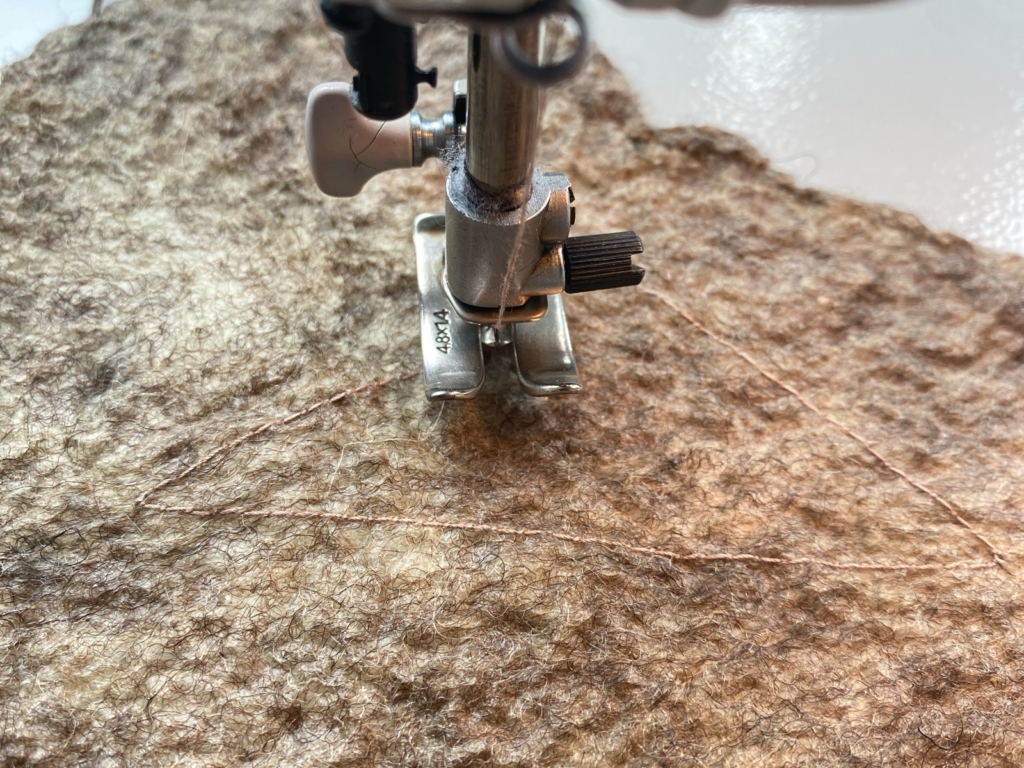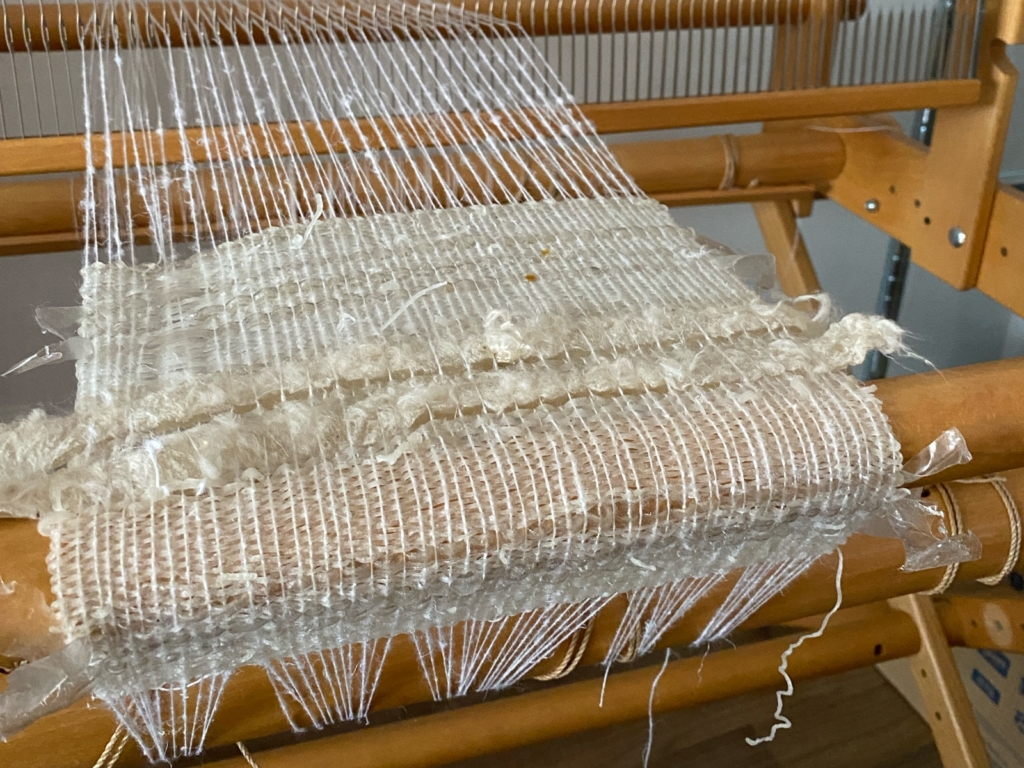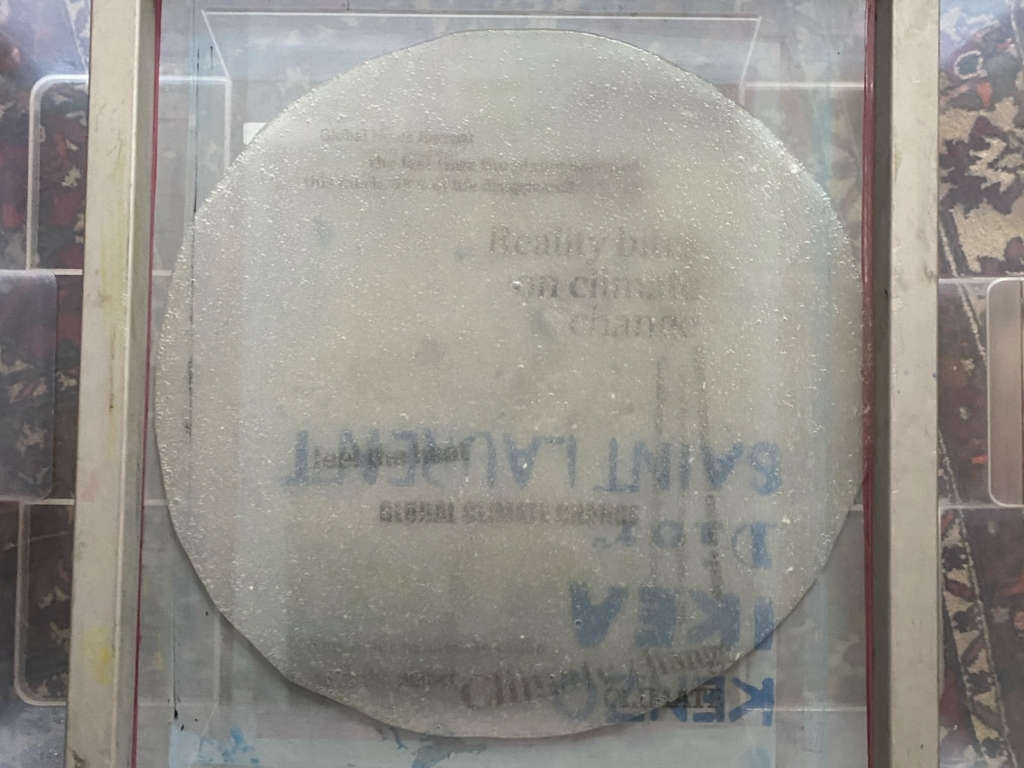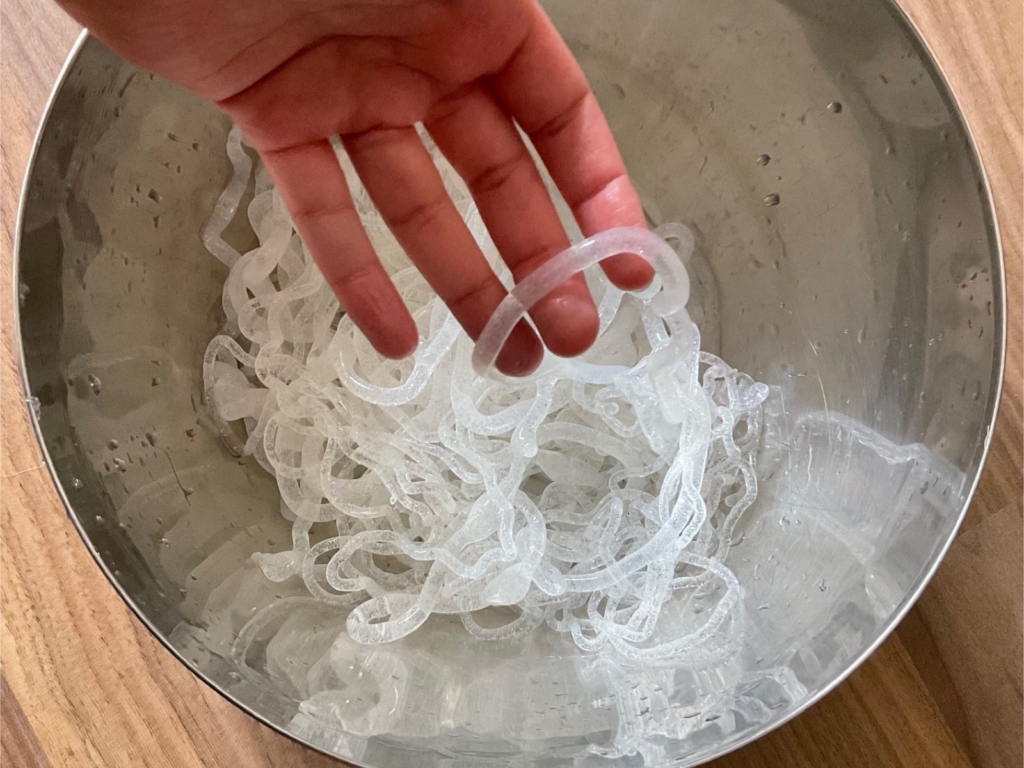Nowadays, it is important to ensure that landfills are not unnecessarily filled with fashion products and that microplastic pollution is avoided. It is important to create sustainable materials that are quickly degradable at the end of their useful life and can be recycled by the earth. In her bachelor's thesis "Kel[p]eel", Nena Ellermann deals with textiles made of alginate, the use of which offers the possibility of partially replacing petroleum-based materials. She was nominated for the Cologne Design Award 2023 for her work. Here she offers a brief insight into her thesis.
Together with cellulose, alginate is one of the main components of algae. If it is extracted, it offers a wide range of textile applications. For example, as a basis for flexible materials: from yarns and nets to films. Different material thicknesses, transparencies, colors, geometries and surface structures result in different sensory, optical and technical properties. The aim of the practical work is to create an alternative to petroleum-based materials based on the findings of previous material experiments. To illustrate this, two items of clothing were produced as examples of possible substitutes for alginate-based textiles. I would like to use the material to promote the development of sustainable textiles and thus counteract the harmful effects of textile production on the environment.
The advantages of alginate textiles are numerous. Now we need to use them to create a more sustainable future.
With Kel[p]eel, I embarked on an experiment to test the boundaries of sustainability and functionality. There is an urgent need to develop techniques that allow us to use bio-based materials for textiles that also have aesthetic value. We need to love the resistance of the materials we are trying to manage. We must continue to explore the endless possibilities. Some more will follow, some will not, but that may have a beauty of its own that we may begin to recognize (again).
Photos: Philipp Lehmann & Jason H. Lin






